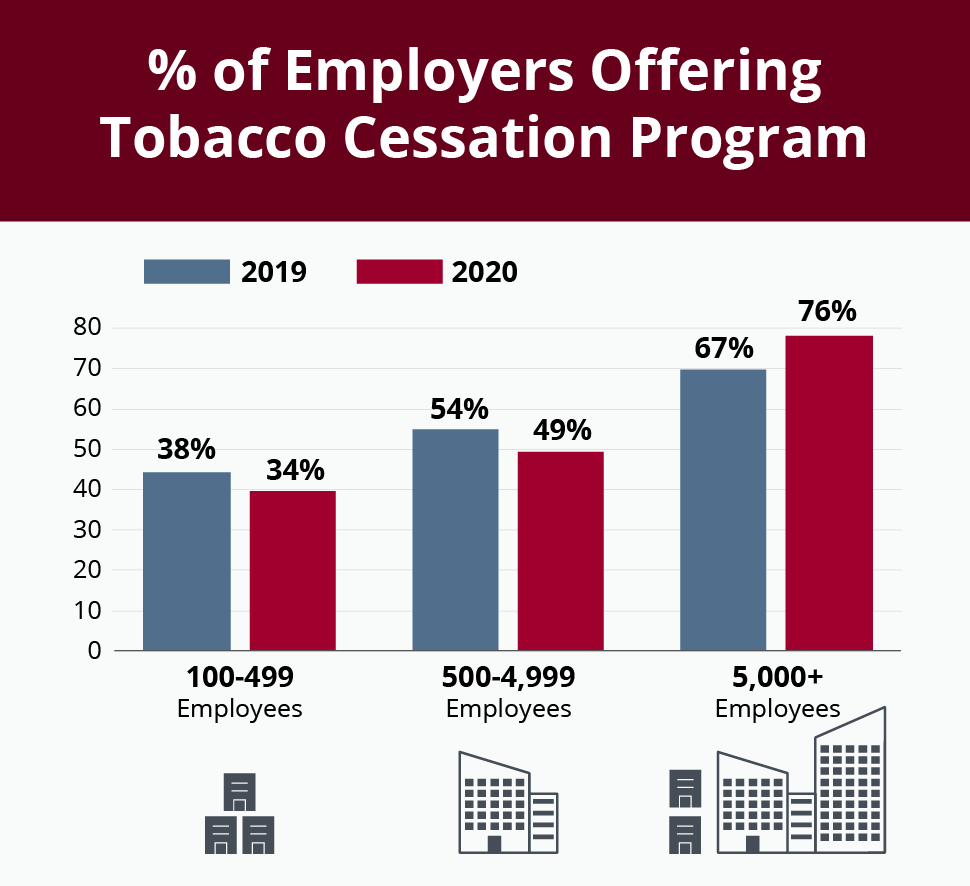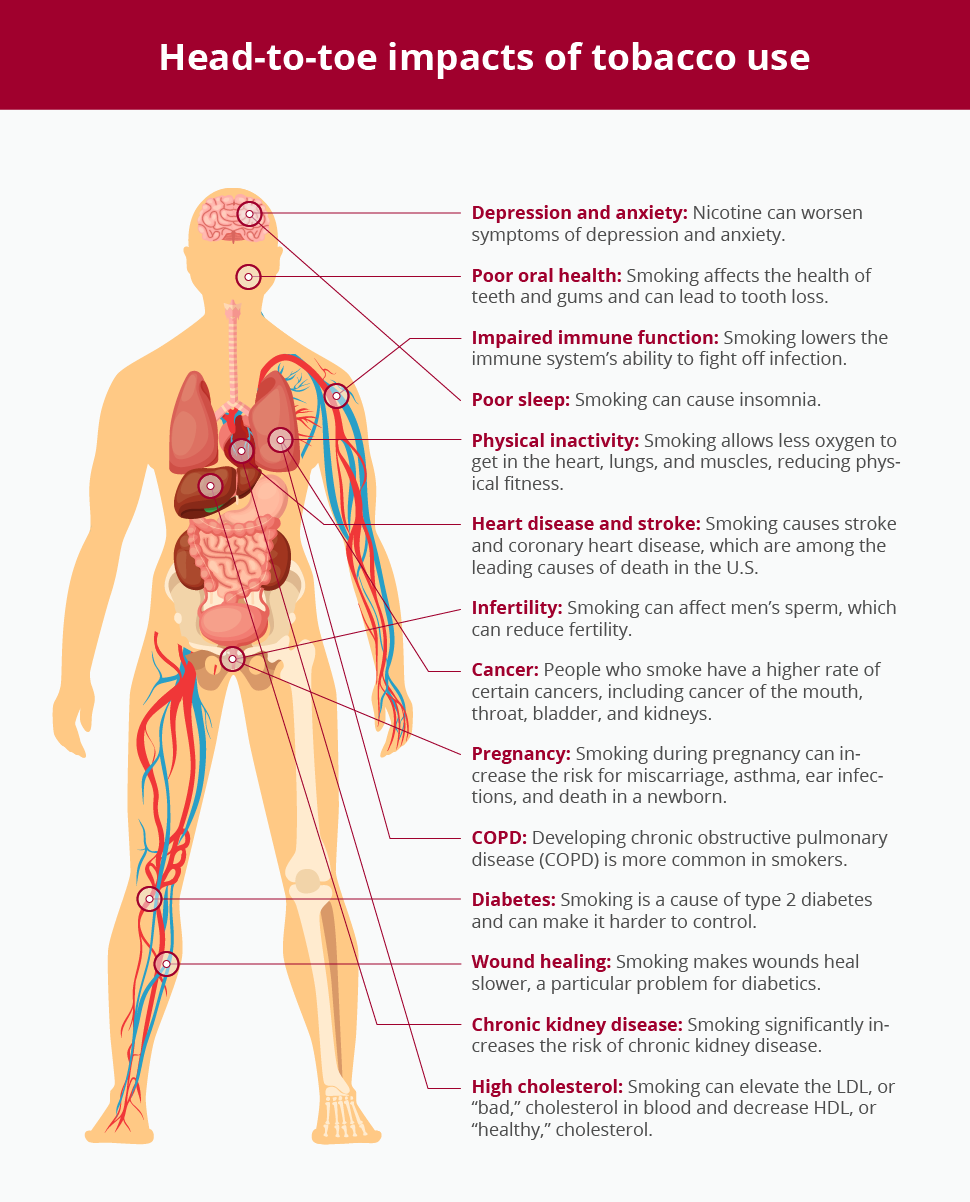Employers have had to make tough choices about benefits budgets in the past few years to recruit top talent, affect employee health, and contain spending.
Among employers with 5,000 or more employees, quit smoking programs have remained a priority. In fact, the percentage of those that offer support to quit tobacco is growing.
Among employers with less than 5,000 employees, however, it’s a different story. Data from the Society for Human Resource Management show that fewer smaller employers are offering tobacco cessation programs. This trend is troubling (and costly) for employees and employers alike.
Which companies still offer quit smoking programs?
Society for Human Resource Management (SHRM) research shows 76% of large employers offered tobacco cessation programs in 2020, up 9% from 2019. Meanwhile, among smaller employers, the percentage offering cessation declined by 4-5 percentage points.
In SHRM’s research, cessation programs weren’t the only resources on the chopping block among employers with less than 5,000 employees. There were declines in other wellness-focused efforts as well, including health insurance premium discounts for participation in wellness programs.
Most likely, cuts were made in these areas to shift funds to other services. For example, the report showed an increase in spending for stress management and mindfulness programs in small to mid-size employers.
Among large employers, the increase in companies offering tobacco cessation is likely due to heightened awareness of the need for services that significantly impact mental wellness, including addiction support.
With the head-to-toe impact of tobacco use on employee health, it’s critical that employers of all sizes approach tobacco cessation as a core offering. In fact, helping people quit tobacco can influence the impact of many other programs, including those focused on mental health.
Adapted from The Health Consequences of Smoking: 50 Years of Progress. A Report of the Surgeon General
Why stress management without cessation support is a disconnect
It makes sense that greater funding would go toward stress and mental health support right now.
In its Benefit Trends Survey, consulting firm Willis Towers Watson noted that 73% of employers cite stress, burnout, and mental health issues as their top workforce challenges.
But when companies support stress management without providing support to quit tobacco, it’s a disconnect. Tobacco use can have a profound ripple effect on multiple aspects of physical and mental health.
For mental health in particular—the issue most employers see as their current top concern—there’s ample evidence that overcoming nicotine addiction can help reduce stress and feelings of anxiety and depression.
In fact, quitting smoking can be as helpful (or more) as antidepressant treatment in reducing depression and anxiety. Plus, the dosage of some medicines used to treat mental health problems can be reduced after quitting tobacco.
To learn more about the impact of tobacco use on mental health, see 4 Myths about Tobacco Use and Employee Mental Health.
See how tobacco cessation fits in your benefits mix
While companies of every size must review their benefits mix to ensure employees get what they need, cutting tobacco cessation programs isn’t the answer.
Offering an evidence-based tobacco cessation program can be a very cost effective way to improve multiple dimensions of employee health—and workplace health—at the same time.
To learn how the EX Program, a proven digital program for tobacco addiction built in collaboration with Mayo Clinic, can fit into your benefits budget, please contact us today.






